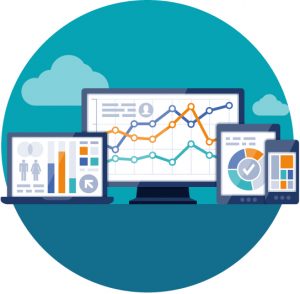By Venkkat Ramanan
This period of economic recovery could be a dangerous time for many small businesses, especially if they have had to take loans or exhausted their cash reserves in an attempt to stay afloat during the pandemic. For small business owners, how can you ensure your business keeps trading through this period and prospers in the months and years ahead?
Keep up-to-date and accurate accounts, with all transactions reconciled against your business bank accounts.
This is made possible by cloud accounting software that connects to your online banking service. Real-time accounting information will give you a realistic overview of how your business is performing.
 Set some money aside for emergencies.
Set some money aside for emergencies.
As the COVID-19 crisis has shown, the business environment can take a turn for the worst quite unexpectedly. Having cash set aside will allow both you and your business to withstand turbulent times. Make sure you understand your business’s fixed costs, including lease and rental commitments, since this will help you to work out how much money you should set aside. Ideally there should be enough to cover at least six months of expenses.
Make use of automation.
Automate as many routine tasks as possible. While automation does require some financial investment, it will free up your time to focus on marketing, and securing and retaining customers, which will help to drive profits in the long run.
Ask your accountant to prepare management accounts and review them on a monthly basis.
This will allow you to keep track of your business’s monthly profit and loss, as well as profitability by customer and product. If there are too many numbers, track a few Key Performance Indicators (KPIs) and ask your accountant to develop a dashboard for you. By actively monitoring your management accounts, you can boost your business’s resilience so that it can survive any short-term trading difficulties.
Understand your business’s balance sheet.
A balance sheet is effectively a summary of your business’s position. It lists the business’s assets, liabilities and shareholders’ equity at a specific point in time. When you understand your balance sheet, you understand what’s going on in your business, including the level of debt that it has, and the risks it is currently facing. Best practice is to plan your salary, dividends and drawings at the start of each financial and tax year.
Open access to other markets.
Many SMEs struggle to expand or internationalise their business even with an open and fair-trade framework in place. Local authorities or agencies can help businesses face competition, access foreign markets and find new business partners abroad. Going international increases SMEs’ performance, enhances competitiveness and reinforces sustainable growth.
 Access to digital platforms.
Access to digital platforms.
Digitalisation is crucial for data processing, storage and transmission. Going digital in today’s knowledge economy offers more gains and is part of your business edge. SMEs should go digital to increase productivity and profits given the constantly changing business landscape, increasing market competition and everchanging customer needs.
A great way to boost the resilience of your business in this period of economic recovery is to draw on the services of a management accountant. Even if you can’t afford to employ someone on a full-time basis, you may be able to hire a management accountant for one day per week or month. By building a strong working relationship with your management accountant, you will be better positioned to manage your current risks and plan for a better future.
Venkkat Ramanan FCMA, CGMA is the Regional Vice-President – Asia-Pacific, The Association of International Certified Professional Accountants






